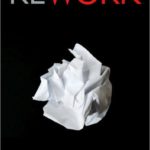Predictably Irrational
Dan Ariely
We don’t know what we want until we see it context with something else. Is a four-cylinder better and by logic more expensive than a six-cylinder? We rarely choose something based on absolute terms.
For example, many sales tactics add a decoy expensive price to influence buyers to choose the middle option which is many times higher priced option in disguise (ever seen the bottle of Dom Perignon and wings at Hooter’s?). When CEO’s salaries went from 36x to 131x while regular employees pay when the info went public. Yet, CEOs were the pissed ones. It’s all relative. We compare our salary to our wife’s sisters husbands salary.
When CEO’s salaries went from 36x to 131x while regular employees pay when the info went public. Yet, CEOs were the pissed ones. It’s all relative. We compare our salary to our wife’s sisters husbands salary.
Many of our decisions are made based on an anchor, or the first number or price indicated in a sale (watch what happens when you try to buy a used car). It takes place whether it is a positive or negative act. What if we are the sum of our first decisions in life?
What if we are the sum of our first decisions in life?
“Free” has a hidden cost. When choosing between two products, we often overreact to the free one. We tend to favor the free bargain over the quality or preference of another.
The cost of social norms. When market norms enter the conversation, social norms depart. People actually work better when doing this for free. Also, small gifts work as well as working for free, and tying no money to the task. When shifting a relationship into economic terms from social norms, relationships get wrecked.
When tagging a price to an object, customers will buy in bulk. But when free, social norms kick in they’ll ration their the amount they take, but more will take overall. So while the product (candy, in our case) was more attractive to more people, it also made people think more about others, care about them, and sacrifice their own desires for the benefit of others. As it turns out, we are caring social animals, but when the rules of the game involve money, this tendency is muted.
When it comes to pollution and other social problems, instead of tagging a penalty or monetary value to the problem, We need to make pollution into an easily measurable and observable quantity and get people to pay attention to it and understand its importance. Make it a negative social norm. When tagging a dollar sign to it, companies will use a cost-benefit analysis to weigh if it can do it.
Sexual arousal allows our reptilian brain to kick in and we’re more apt to make bad decisions.
The best cure for procrastination is tightly monitored and strict deadlines.
Three quirks: The first quirk is that we fall in love with what we already have. The second quirk is that we focus on what we may lose, rather than what we may gain. The third quirk is that we assume other people will see the transaction from the same perspective as we do. Once we change our possessions we have a very hard time going back down. We have the propensity to overvalue what we own or have put time and effort into.
Why options keep us distracted from the main objective: The experiments determine that picking a room and staying there earned the most money, similar to a person’s career. One must take into account the consequences of not making a decision.
Changing our expectations can influence our decisions. That’s what marketing is all about—providing information that will heighten someone’s anticipated and real pleasure. Positive expectations help us experience things better and enjoy things more.

 Rework – Jason Fried
Rework – Jason Fried